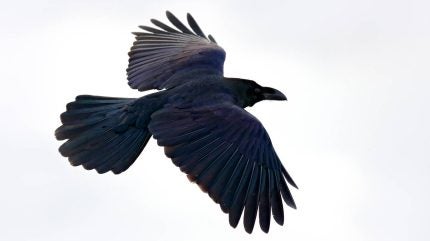
Australian-American biotech Vaxxas has announced the completion of enrolment for its Phase I avian influenza A (H7N9) vaccine, which is delivered through a microneedle patch applied to the skin.
The company has successfully enrolled 258 healthy volunteers aged between 18 and 50 years who will be dosed with the company’s primary influenza candidate, VXS-1219, using a high-density microarray patch (HD-MAP), an alternative delivery method. The patch contains many small needles and is designed to be self-administered.

Discover B2B Marketing That Performs
Combine business intelligence and editorial excellence to reach engaged professionals across 36 leading media platforms.
The trial has received $28.5m in funding from various government agencies including the US Department of Health and Human Services (DHHS), the Administration for Strategic Preparedness and Response and the Biomedical Advanced Research and Development Authority (BARDA), as a possible response to a potential future pandemic.
Avian influenza, often known as bird flu, is a disease spread primarily through domestic and farmed birds, with wild birds acting as carriers. It is zoonotic, meaning it can spread across species, but only under rare and prolonged circumstances. This particular strain, H7N9, was initially discovered in China in 2013.
It follows after the US Centers for Disease Control (CDC) confirmed the first death in the country from H5N1 originated from a Louisiana hospital. Presently, the body estimates that there are 69 recorded cases of the disease.
In the Vaxxas trial, participants will be randomised to receive an adjuvant-free formulation or an adjuvanted vaccine formulation. They will also be randomised to receive VXS-1219 either by way of a typical needle injection or through the company’s proprietary HD-MAP device.

US Tariffs are shifting - will you react or anticipate?
Don’t let policy changes catch you off guard. Stay proactive with real-time data and expert analysis.
By GlobalDataVaxxas CEO David Hoey said: “In our prior clinical studies for seasonal influenza, we’ve demonstrated comparable immune responses to traditional vaccination with as little as one-sixth of the vaccine with no adjuvant by delivering the vaccine directly to the immune cells just below the skin surface.
“These promising results give us hope that the unadjuvanted formulation we’re using in this trial will be comparable to adjuvanted formulations delivered by needle and syringe. In addition, if the adjuvanted HD-MAP formulation is safe and produces superior immune responses, it will open new opportunities to target a broader range of infectious diseases with HD-MAP vaccines.”
The company previously investigated the avian influenza HD-MAP vaccine in a Phase I trial (ACTRN12618000112268) in 120 healthy volunteers. The trial found the patch to be well tolerated and resulted in immune responses.
The company has investigated its HD-MAP delivery system in other vaccine trials. A previous Phase I trial (ACTRN12618000112268) of the HD-MAP system coated with a monovalent, split-inactivated influenza virus vaccine containing A/Singapore/GP1908/2015 H1N1 haemagglutinin (HA). The trial was safe and tolerable and resulted in immune responses.
In the specific H7N9 market, VXS-1219 is only facing one other competitor currently in Phase II trials, Pneumagen’s Neumifil. Research by GlobalData currently estimates the general global market for avian influenza vaccines to be worth approximately $25m by the end of 2030.
GlobalData is the parent company of Clinical Trials Arena.
Elsewhere in the avian influenza space, Arcturus Therapeutics has announced the launch of a Phase I trial of ARCT-2304, a self-amplifying mRNA (sa-mRNA) vaccine candidate designed to combat the H5N1 strain of the virus. Meanwhile, Traws Pharma has completed Phase I clinical trials of its candidate, tivoxavir marboxil,





